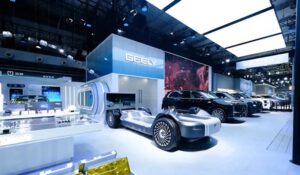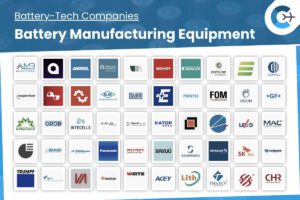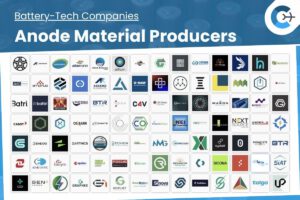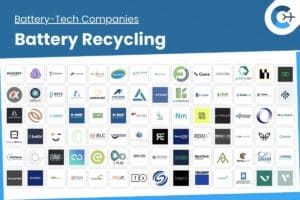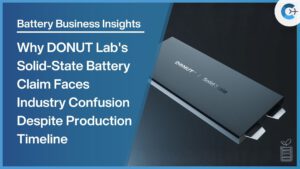Toyota has started production at its new $13.9 billion battery manufacturing facility in Liberty, North Carolina. The plant—Toyota’s eleventh U.S. factory and its first battery plant outside Japan—is expected to create up to 5,100 jobs. The company also announced plans to invest up to $10 billion over the next five years, raising its total U.S. investment to nearly $60 billion since it began operations in the country about 70 years ago. Located on an 1,850-acre site, the facility will produce lithium-ion batteries for hybrid electric vehicles, plug-in hybrid electric vehicles and battery electric vehicles. At full capacity, it will generate up to 30 gigawatt-hours annually across 14 production lines. Initial output will support models such as the Camry HEV, Corolla Cross HEV and RAV4 HEV, with additional lines slated for an upcoming all-electric, three-row vehicle. Modules are already being shipped to Toyota Kentucky and Mazda Toyota Manufacturing in Alabama, with further expansion expected by 2030.
Governor Josh Stein described the launch as a significant economic milestone for North Carolina, and U.S. Secretary of Transportation Sean Duffy highlighted the project’s contribution to domestic manufacturing. Ted Ogawa, president and CEO of Toyota Motor North America, said the facility underlines the company’s commitment to its workforce, dealers, communities and suppliers.
To bolster future talent, Toyota awarded $2.7 million in grants to Guilford County Schools and the Asheboro City School District as part of its national Driving Possibilities STEM education initiative. Funded by the Toyota USA Foundation and supported by Toyota Motor North America and Toyota Financial Services, the program partners with educators and nonprofits to prepare students for STEM careers.
The Liberty plant will also feature on-site amenities for employees, including childcare, a medical clinic, a pharmacy and a fitness center. Since 2000, Toyota has sold more than 6.6 million electrified vehicles in the U.S. and currently assembles 11 hybrid and plug-in hybrid models domestically as part of its strategy to reduce carbon emissions.
Source: Toyota Pressroom





